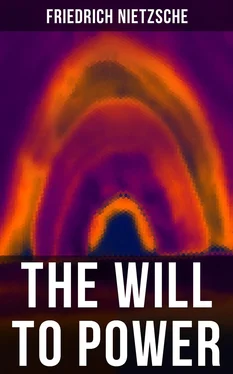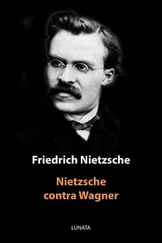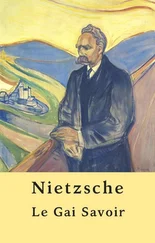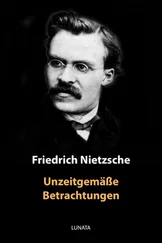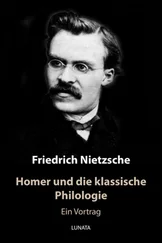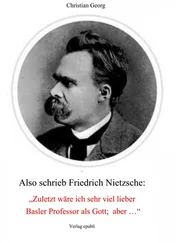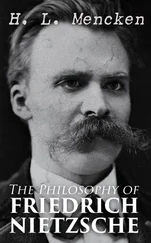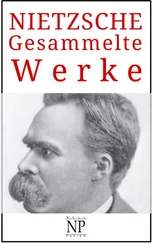8. Art and the preparation of Nihilism. Romanticism (the conclusion of Wagner's Ring of the Nibelung ).
I. Nihilism
1. Nihilism As an Outcome of the Valuations and Interpretations of Existence Which Have Prevailed Heretofore
Table of Contents
2.
What does Nihilism mean?— That the highest values are losing their value. There is no bourne. There is no answer to the question: "to what purpose?"
3.
Thorough Nihilism is the conviction that life is absurd, in the light of the highest values already discovered; it also includes the view that we have not the smallest right to assume the existence of transcendental objects or things in themselves, which would be either divine or morality incarnate.
This view is a result of fully developed "truthfulness": therefore a consequence of the belief in morality.
4.
What advantages did the Christian hypothesis of morality offer?
(1) It bestowed an intrinsic value upon men, which contrasted with their apparent insignificance and subordination to chance in the eternal flux of becoming and perishing.
(2) It served the purpose of God's advocates, inasmuch as it granted the world a certain perfection despite its sorrow and evil—it also granted the world that proverbial "freedom": evil seemed full of meaning .
(3) It assumed that man could have a knowledge of absolute values, and thus granted him adequate perception for the most important things.
(4) It prevented man from despising himself as man, from turning against life, and from being driven to despair by knowledge: it was a self-preservative measure.
In short: Morality was the great antidote against practical and theoretical Nihilism.
5.
But among the forces reared by morality, there was truthfulness : this in the end turns against morality, exposes the teleology of the latter, its interestedness, and now the recognition of this lie so long incorporated, from which we despaired of ever freeing ourselves, acts just like a stimulus. We perceive certain needs in ourselves, implanted during the long dynasty of the moral interpretation of life, which now seem to us to be needs of untruth: on the other hand, those very needs represent the highest values owing to which we are able to endure life. We have ceased from attaching any worth to what we know, and we dare not attach any more worth to that with which we would fain deceive ourselves—from this antagonism there results a process of dissolution.
6.
This is the antinomy : In so far as we believe in morality, we condemn existence.
7.
The highest values in the service of which man ought to live, more particularly when they oppressed and constrained him most—these social values, owing to their tone-strengthening tendencies, were built over men's heads as though they were the will of God or "reality," or the actual world, or even a hope of a world to come. Now that the lowly origin of these values has become known, the whole universe seems to have been transvalued and to have lost its significance—but this is only an intermediate stage.
8.
The consequence of Nihilism (disbelief in all values) as a result of a moral valuation:— We have grown to dislike egotism (even though we have realised the impossibility of altruism);— we have grown to dislike what is most necessary (although we have recognised the impossibility of a liberum arbitrium and of an "intelligible freedom" 1). We perceive that we do not reach the spheres in which we have set our values—at the same time those other spheres in which we live have not thereby gained one iota in value. On the contrary, we are tired, because we have lost the main incentive to live. "All in vain hitherto!"
9.
"Pessimism as a preparatory state to Nihilism."
10.
A. Pessimism viewed as strength— in what respect? In the energy of its logic, as anarchy, Nihilism, and analysis.
B. Pessimism regarded as collapse— in what sense? In the sense of its being a softening influence, a sort of cosmopolitan befingering, a "tout comprendre," and historical spirit.
Critical tension : extremes make their appearance and become dominant.
11.
The logic of Pessimism leads finally to Nihilism: what is the force at work? —The notion that there are no values, and no purpose : the recognition of the part that moral valuations have played in all other lofty values.
Result: moral valuations are condemnations, negations; morality is the abdication of the will to live....
12.
The Collapse of Cosmopolitan Values.
A.
Nihilism will have to manifest itself as a psychological condition, first when we have sought in all that has happened a purpose which is not there: so that the seeker will ultimately lose courage. Nihilism is therefore the coming into consciousness of the long waste of strength, the pain of "futility," uncertainty, the lack of an opportunity to recover in some way, or to attain to a state of peace concerning anything—shame in one's own presence, as if one had cheated oneself too long.... The purpose above-mentioned might have been achieved: in the form of a "realisation" of a most high canon of morality in all worldly phenomena, the moral order of the universe; or in the form of the increase of love and harmony in the traffic of humanity; or in the nearer approach to a general condition of happiness; or even in the march towards general nonentity—any sort of goal always constitutes a purpose. The common factor to all these appearances is that something will be attained, through the process itself: and now we perceive that Becoming has been aiming at nothing, and has achieved nothing. Hence the disillusionment in regard to a so-called purpose in existence, as a cause of Nihilism; whether this be in respect of a very definite purpose, or generalised into the recognition that all the hypotheses are false which have hitherto been offered as to the object of life, and which relate to the whole of "Evolution" (man no longer an assistant in, let alone the culmination of, the evolutionary process).
Nihilism will manifest itself as a psychological condition, in the second place, when man has fixed a totality, a systematisation, even an organisation in and behind all phenomena, so that the soul thirsting for respect and admiration will wallow in the general idea of a highest ruling and administrative power (if it be the soul of a logician, the sequence of consequences and perfect reasoning will suffice to conciliate everything). A kind of unity, some form of "monism":' and as a result of this belief man becomes obsessed by a feeling of profound relativity and dependence in the presence of an All which is infinitely superior to him, a sort of divinity. "The general good exacts the surrender of the individual ..." but lo, there is no such general good! At bottom, man loses the belief in his own worth when no infinitely precious entity manifests itself through him—that is to say, he conceived such an All, in order to be able to believe in his own worth.
Nihilism, as a psychological condition, has yet a third and last form. Admitting these two points of view : that no purpose can be assigned to Becoming, and that no great entity rules behind all Becoming, in which the individual may completely lose himself as in an element of superior value; there still remains the subterfuge which would consist in condemning this whole world of Becoming as an illusion, and in discovering a world which would lie beyond it, and would be a real world. The moment, however, that man perceives that this world has been devised only for the purpose of meeting certain psychological needs, and that he has no right whatsoever to it, the final form of Nihilism comes into being, which comprises a denial of a metaphysical world, and which forbids itself all belief in a real world. From this standpoint, the reality of Becoming is the only reality that is admitted: all bypaths to back-worlds and false godheads are abandoned—but this world is no longer endured, although no one wishes to disown it.
Читать дальше
